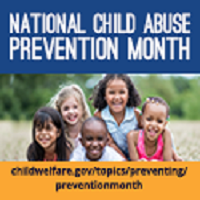11 Things You Can Do to Make Your Children Safer from Abuse
Early in my graduate training, I stumbled over some great information and advice in my studies on all aspects of trauma and child abuse. One author wrote that parents should tell your children the following. “If someone tells you not to tell your parents, they are not your friend. Come and tell me right away!”
So I did. And he did.
There was an older grandfather in the neighborhood who was showing the boys pornography. My studies taught me that this is a clue. An early strategy pedophiles often use to seduce young children.
I praised my son for trusting me. The solution was easy. My child could play with that other child at our house.
Here’s another example. A local school district offered a child abuse prevention program in all of their elementary schools. Not too long afterward, a youth leader attempted to molest several young children at a sleep-away camp. They did what they were taught. They all said “no.” Then repeated their “NO” more loudly in the face of increased pressure from the predator.
These kids understood what to do. The children realized they’d be believed. They also learned they could stand up to an adult who wanted to invade their space. They believed they would not be punished for refusing to follow an adult’s wrong directions.
They told their parents when they arrived home. Their parents believed them, then reported the pedophile to their local police department.
These children were not molested or traumatized. Instead, the predator went to jail. This is a successful example of abuse proofing children.
People think any and all abuse attempts will damage their children. It’s not true. Abuse proofing your child prevents the abuse. It also prevents the damage.
Here is what you need to know to abuse proof your own child.
- Abusers can be strangers AND people you know.
As loving parents, we fear the stranger who could harm our children. However, according to the National Clearinghouse on Child Abuse and Neglect Information, most abused children are abused by someone they know.
- Child molesters and abusers look for opportunity.
This means they plant themselves where children are available. Predators go out of their way to ingratiate themselves with the parents of their child victims. Often they worked very hard to win YOUR trust. Don’t give it to them. You’ll see this by instinct. Trust that instinct.
- Children own their private spaces just like adults.
A pedophile will make slow, yet deliberate and inappropriate attempts to invade the private spaces of their potential child victim. Teach them their right to their physical space.
- A child’s sense of personal space and privacy changes as he or she ages.
A young child learns about good touches and bad touches. They might learn about the private parts of their body that no one is supposed to touch. As they grow, they might learn about self-expression with the right to their own ideas, thoughts and feelings.
- Children sense violation the same as adults do.
As adults, you can understand that uncomfortable feeling you experience when someone stands too close to you, asks too many personal questions or actually takes something out of your purse or off your desk. As adults, you can learn to speak up.
- This rule is a little more complicated for children. They live with less control over their lives than adults.
So, you might want to begin protecting your child by telling him or her to tell you if another person makes them uncomfortable.
- Children need “NO” type words you, as parents, can accept.
Loving parents want their children to do well in life, develop friends, and be successful in school. Most parents hope to raise children that learn manners and proper behavior. Find a way within your family values for your child to say “NO” to the earliest invasion of a human predator.
- Develop your own balance between teaching your children proper behavior and teaching your children self-protection.
This is where intuition, values, good judgment and parenting skills are vitally important. You have your home rules along with your religious and moral values. You, as parent, can use your beliefs as your guide to teaching your child how to express themselves.
- Children need to tell someone about this violation.
Predators are difficult enough for adults to handle! Since children have fewer skills to handle predators, they need adult assistance. They have to be able to tell you.
- They need you to hear them when they tell you.
This is probably the most painful and difficult part. Not “Auntie Nameless” or “Uncle So and So”!
- Children should keep telling trusted adults until an adult hears them.
Teach your children to come to you. As you do, teach them to get help for themselves wherever they are and whenever they need help.
Children learn very fast when you talk directly and listen to them about the things that bother them. Try it! You’ll be glad you did.
The article “11 Things You Can Do to Make Your Children Safer from Abuse” appeared first on ColemanLifeCoaching.com.American SPCC encourages you to join us as we help create a brighter future for kids. Through advocacy and help resources we create real impact in families and communities. Kid’s need our voice like never before! TAKE ACTION and start making a positive difference in the life of a child.
There are so many ways that you can be a hero! About the author
 Laura Bradford Coleman, Ph.D. is a Board Certified Coach, National Certified Counselor, Certified Clinical Mental Health Counselor and credentialed special education teacher. She’s worked for decades to help children and their parents with traumatic events.
Laura Bradford Coleman, Ph.D. is a Board Certified Coach, National Certified Counselor, Certified Clinical Mental Health Counselor and credentialed special education teacher. She’s worked for decades to help children and their parents with traumatic events.
Dr. Laura Bradford Coleman offers online services via conference call and videoconference. She offers direct services to parents and children in her Murfreesboro, Tennessee office.
You can read more of her writing on her website: ColemanLifeCoaching.com
http://colemanlifecoaching.com

